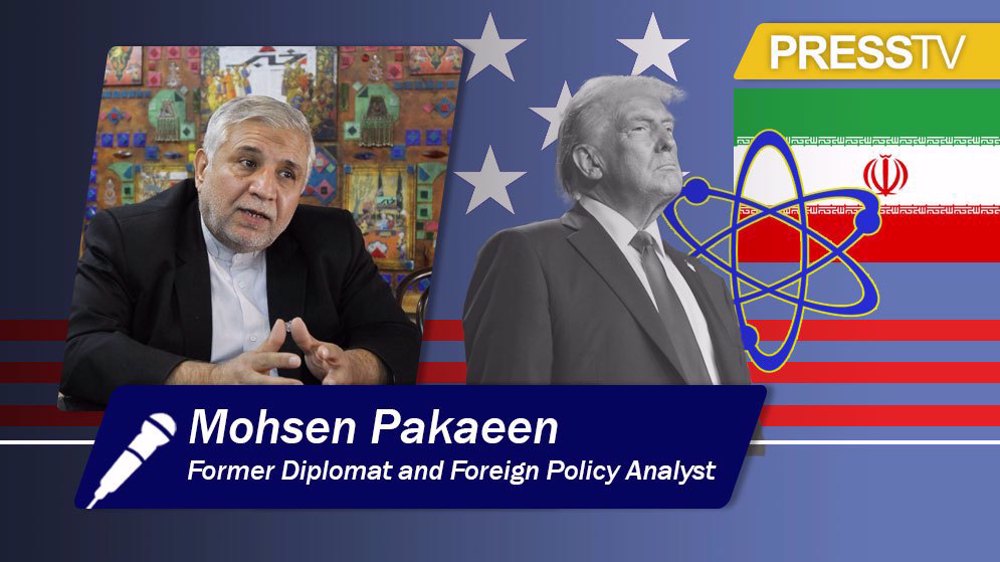Trump says EU ‘treating US worse than China’ on trade
US President Donald Trump says the European Union’s trade barriers are damaging American manufacturing, making the bloc even more harmful to the US than China, which is engaged in a trade war with Washington.
“The European Union treats us, I would say, worse than China, they’re just smaller,” Trump told a gathering of real estate agents in Washington on Friday.
“They have trade barriers. They don’t want our farm products, they don’t want our cars. They send Mercedes-Benz’s in here like they’re cookies. They send BMWs here. We hardly tax them at all,” he added.
In a proclamation released Friday, Trump declared that some imported vehicles and parts from the EU and Japan pose a national security threat to the US.
In the public announcement, Trump said he agreed with a US Commerce Department study that found some imported cars and trucks are “weakening our internal economy” and threaten to harm national security.
Trump also announced he would delay a decision for as long as six months on whether to impose tariffs on European and Japanese autos to allow for more time for trade talks with Brussels and Tokyo.
The president had faced a Saturday deadline to make a decision on recommendations by the US Commerce Department to protect the US auto industry from imports on national security grounds and imposing tariffs of up to 25 percent.
Trump has directed US Trade Representative Robert Lighthizer to pursue negotiations with the EU, Japan and any other country he deemed appropriate and report back within 180 days.
Trump’s decision, at least for now, averts what was shaping up to be a new dramatic escalation in the Trump administration’s trade disputes around the world, including a trade war with China.
Trump’s proclamation said “domestic conditions of competition must be improved by reducing imports” and said a strong American car industry is vital to US military superiority.
Commerce Department statistics show that US-owned companies’ share of the US automobile market has declined from 67 percent, or 10.5 million units produced and sold in the United States, in 1985, to 22 percent, or 3.7 million units produced and sold in the United States, in 2017.
At the same time, auto imports nearly doubled during the same time- from 4.6 million units to 8.3 million units.
Automakers warned the tariffs cost hundreds of thousands of auto jobs, dramatically raise prices on vehicles and threaten industry spending on self-driving cars.
US Senator Ron Wyden, a Democrat, criticized Trump’s finding and said his “petulant threats will only make it less likely our allies will work with us to confront our collective challenges with China and to fix real trade problems.”
Ex-PM Olmert admits Israel committing ‘ethnic cleansing’ in West Bank
Iran, US begin talks on nuclear program in Muscat: Report
China reaffirms support for Iran’s peaceful nuclear rights
FM: Iran stands firm on rights, enters talks with US ‘with open eyes’
VIDEO | Northern Morocco braces for flooding amid heavy rain
#IR47: How 1979 Islamic Revolution reshaped women’s role in Iran's medical sector
US pursues ‘neither war, nor peace’ strategy to sustain pressure on Iran: Ex-diplomat
VIDEO | Iranian family mourns father killed in foreign-backed violence











 This makes it easy to access the Press TV website
This makes it easy to access the Press TV website